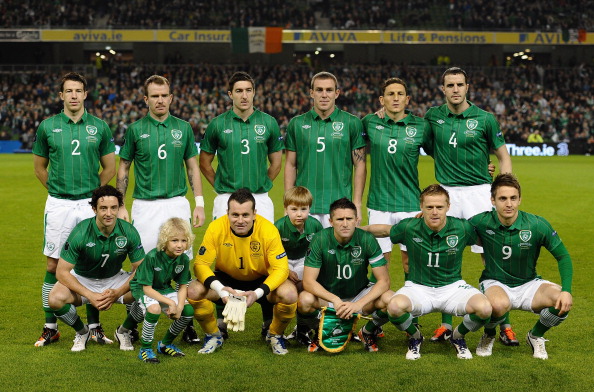EFFORT VERSUS TALENT
Yesterday, the Irish international soccer team kicked off their European Championship adventure with a match against Croatia. Despite qualifying for the finals, the team has shipped a lot of criticism. Under the guidance of Italian manager Giovanni Trappattoni, they eschew fancy, skilful football for a pragmatic approach that emphasises organisation, discipline and effort.

Today’s fast paced, information-rich world is a demanding and competitive environment as well. Work is increasingly mentally tough, requiring the ability to process large amounts of information quickly and to come up with creative and innovative solutions. So should we recruit talented people or hard workers? And more importantly how should we manage them over time?
To this end it is worth revisiting a classic piece of research on children which was published by Carol Dweck over 10 years ago. She took several hundred New York schoolchildren and gave them a test. Afterwards she praised half for effort (‘you must have worked really hard’) and the other half for intelligence (‘you must be smart at this’). Then she offered the children a choice of two further tests – one at the same level as the first and another more difficult. The results were fascinating. Of those praised for effort, 90 percent chose the harder test and the numbers were reversed in the case of those praised for intelligence. Dweck’s conclusions were that the intelligence group were scared of failure while the effort group were keen to learn from their mistakes. This conclusion was reinforced when the pupils were offered the choice of looking at the test papers of those who had done better or worse than them. Almost all the intelligence group chose to boost their self-esteem by looking at the work of those below them, while most of the effort group examined better test papers to understand their mistakes. In subsequent tests, the effort pupils raised their average scores by 30 per cent, while the intelligence group average dropped by 20 per cent.
The implications are obvious. Whether you are working with children or knowledge workers (and sometimes the differences are not all that clear!!) it is much better to focus on effort than on outcomes. You want your employees to be challenged by complex problems and to be keen to put the effort into coming up with solutions. Moreover, you do not want them to be afraid of failure because discontinuous innovations almost inevitably have high failure rates. These have to be tolerated to ultimately get the results that you want.
Related Articles
http://johnfahy.net/blog/2012/5/28/choices-choices-choices.html






 John Fahy
John Fahy
Reader Comments